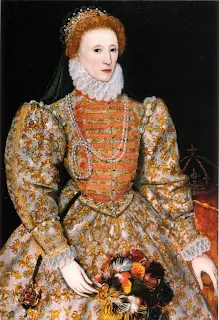Qu Yuan (343–278 BCE)
Qu Yuan (Chinese: 屈原; pinyin: Qū Yuán; Wade–Giles: Ch'ü Yüan; EFEO: K'iu Yuan) (343–278 BCE)[1][2][3] was a Chinese poet who lived during the Warring States Period of ancient China. He is known for his contributions to classical poetry and verses, especially through the poems of the Chu Ci anthology (also known as The Songs of the South or Songs of Chu): a volume of poems attributed to or considered to be inspired by his verse writing. Together with the Shi Jing, the Chu Ci is one of the two great collections of ancient Chinese verse.
Historical details about Qu Yuan's life are few, and his authorship of many Chu Ci poems have been questioned at length.[4] However, he is widely accepted to have written Li Sao, the most well-known of the Chu Ci poems, and possibly several others in the collection, as well. The first known reference to Qu Yuan appears in a poem written in 174 BCE by Jia Yi, an official from Luoyang who was slandered by jealous officials and banished to Changsha by Emperor Wen of Han. While traveling, he wrote a poem describing the similar fate of a previous "Qu Yuan."[5] Eighty years later, the first known biography of Qu Yuan's life appeared in Han Dynasty historian Sima Qian's Records of the Grand Historian, though it contains a number of contradictory details.[6]
Notes
[1]^ Classe, Olive (2000). Encyclopedia of Literary Translation into English, Volume 2. Taylor & Francis. p. 1506. ISBN 9781884964367.
[2]^ Stephen Owen, ed. (2008). The Cambridge History of Chinese Literature, Volume 1. Cambridge University Press. p. 76. ISBN 9780521855587.
[3]^ Judge, 55
[4]^ Zhao Kuifu 趙逵夫, "Riben xin de Qu Yuan fouding lun Chansheng de Lishi Beijing yu Sixiang Genyuan Chutan" 日本新的 “屈原否定論” 產生的歷史背景與思想根源初探, in Fuyin Baokan Ziliao, Zhongguo Gudai Jindai Wenxue Yanjiu 複印報刊資料,中國古代近代文學研究, (1995: 10): 89–93.
[5]^ Quoted in Ban Gu's Book of Han biography of Jia Yi 《漢書·賈誼傳》, also appears in Wenxuan, "Diào Qū Yuán fù" 弔屈原賦.
[6]^ Hawkes, David. Ch'u tz'u: The Songs of the South, an Ancient Chinese Anthology. (Oxford: Clarendon Press, 1959), 52.
http://en.wikipedia.org/wiki/Qu_Yuan
People: 屈原 (Qu Yuan)
China: 屈原 (Qu Yuan)
人物: 屈原 (Qu Yuan, 굴원)
Queen Elizabeth I (1533-1603)
Queen Elizabeth I (1533-1603)
Elizabeth I (7 September 1533 – 24 March 1603) was queen regnant of England and Ireland from 17 November 1558 until her death. Sometimes called "The Virgin Queen", "Gloriana" or "Good Queen Bess", Elizabeth was the fifth and last monarch of the Tudor dynasty. The daughter of Henry VIII, she was born a princess, but her mother, Anne Boleyn, was executed two and a half years after her birth, and Elizabeth was declared illegitimate. Her half-brother, Edward VI, bequeathed the crown to Lady Jane Grey, cutting his two half-sisters, Elizabeth and the Catholic Mary, out of the succession in spite of statute law to the contrary. His will was set aside, Mary became queen, and Lady Jane Grey was executed. In 1558, Elizabeth succeeded her half-sister, during whose reign she had been imprisoned for nearly a year on suspicion of supporting Protestant rebels.
Elizabeth set out to rule by good counsel,[1] and she depended heavily on a group of trusted advisers led by William Cecil, Baron Burghley. One of her first moves as queen was the establishment of an English Protestant church, of which she became the Supreme Governor. This Elizabethan Religious Settlement later evolved into today's Church of England. It was expected that Elizabeth would marry and produce an heir so as to continue the Tudor line. She never did, however, despite numerous courtships. As she grew older, Elizabeth became famous for her virginity, and a cult grew up around her which was celebrated in the portraits, pageants, and literature of the day.
In government, Elizabeth was more moderate than her father and half-siblings had been.[2] One of her mottoes was "video et taceo" ("I see, and say nothing").[3] In religion she was relatively tolerant, avoiding systematic persecution. After 1570, when the pope declared her illegitimate and released her subjects from obedience to her, several conspiracies threatened her life. All plots were defeated, however, with the help of her ministers' secret service. Elizabeth was cautious in foreign affairs, moving between the major powers of France and Spain. She only half-heartedly supported a number of ineffective, poorly resourced military campaigns in the Netherlands, France, and Ireland. In the mid-1580s, war with Spain could no longer be avoided, and when Spain finally decided to attempt to conquer England in 1588, the failure of the Spanish Armada associated her with one of the greatest military victories in English history.
Elizabeth's reign is known as the Elizabethan era, famous above all for the flourishing of English drama, led by playwrights such as William Shakespeare and Christopher Marlowe, and for the seafaring prowess of English adventurers such as Sir Francis Drake. Some historians are more reserved in their assessment. They depict Elizabeth as a short-tempered, sometimes indecisive ruler,[4] who enjoyed more than her share of luck. Towards the end of her reign, a series of economic and military problems weakened her popularity. Elizabeth is acknowledged as a charismatic performer and a dogged survivor, in an age when government was ramshackle and limited and when monarchs in neighbouring countries faced internal problems that jeopardised their thrones. Such was the case with Elizabeth's rival, Mary, Queen of Scots, whom she imprisoned in 1568 and eventually had executed in 1587. After the short reigns of Elizabeth's half-siblings, her 44 years on the throne provided welcome stability for the kingdom and helped forge a sense of national identity.[2]
Quotes·Quotations by Queen Elizabeth I
Past
¶ The past cannot be cured.
Notes
[1]^ "I mean to direct all my actions by good advice and counsel." Elizabeth's first speech as queen, Hatfield House, 20 November 1558. Loades, 35.
[2]^ a b Starkey Elizabeth: Woman, 5.
http://en.wikipedia.org/wiki/Elizabeth_I_of_England
Labels:
Gloriana,
Good Queen Bess,
Queen Elizabeth I,
The Virgin Queen
Subscribe to:
Posts (Atom)
